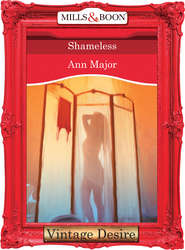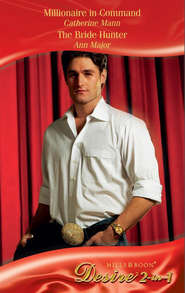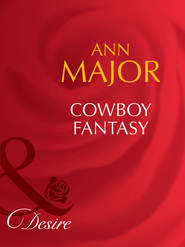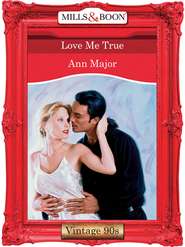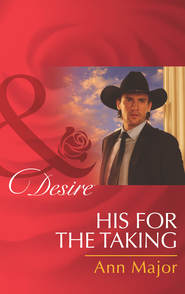По всем вопросам обращайтесь на: info@litportal.ru
(©) 2003-2025.
✖
The Hot Ladies Murder Club
Автор
Год написания книги
2018
Настройки чтения
Размер шрифта
Высота строк
Поля
“What kind of lowlife sues a pregnant lady?” Taz began. Then she told Zoë she was being sued, too.
Zoë giggled after she’d heard the story. “He’s going to tell the judge he’s mad because a hot pickle burned his pink pickle?”
Everybody laughed.
Zoë said, “We’ve got too many lawyers, or at least the wrong kind. In South Texas, anyway.”
Taz chugged a second glass of wine. “Hey—I say we adjourn to your hotel bar and have a serious discussion about this issue.…”
“No,” Hannah said.
“Yes! And the more the merrier,” Tasmania persisted. “I’ve just been dying to meet the shady lady of Shady Lomas.”
“I’d love to meet you, too, but this is sort of a work night. I’m with a writer. She’s here on tour for her latest book, Four Wishes, but her work-in-progress is late. And she’s blocked. And when she’s blocked she gets so crazy there’s no telling what she’ll do. Tomorrow, she’s got a television show and a book signing, and she’s publicity shy. I promised her tonight I’d play Muse.”
“Sounds like you both could use a break,” Tasmania persisted. “Besides, I swear I’ll inspire her. Have you been to that great bar in your hotel that overlooks the beach?”
“I can hear the music all the way up here. Okay, if you really want to come…but just for a little while.” Zoë gave them her room number.
“No way am I driving back to town,” Hannah began.
But Zoë and Taz had already hung up.
“I’ll drive then,” Taz said. “A writer,” she mused. “This is great. She’s got to have a creative mind. She’ll know just what to do about Mr. Billboard and Mr. Hot Pickle whose pickle wasn’t all that hot if you want the truth.”
“Murder,” Hannah suggested.
“But how? Honey, we need specifics…a plot.”
“It doesn’t take a genius to shoot a guy in his parts, grind him into hamburger meat and sell it to Big Burger to feed the natives,” Hannah said. “How’s that for specifics?”
“Honey, I know you’re off burgers and mad as all get out, but, please, don’t ruin my appetite. I’m dying for a burger, cut the pickles, please, even if every bite decides to live on my thighs. Besides,” Taz said, “Joey boy is too cute to shoot, and you don’t have a gun.”
“That’s no problem in Texas.”
BOOK TWO
The world of reality has its limits; the world of imagination is boundless.
JEAN-JACQUES ROUSSEAU
Five
Campbell’s head pounded as he wheeled into the nursing home parking lot so fast he spun gravel. His headache got worse as he parked his gleaming black Porsche near the front doors of the red brick building. Twice a month he came here, and he hated every minute of it, even as he hated himself for being such a sap as to come.
A group of old men and women, their wheelchairs jammed together in a tight little semicircle, were smoking and telling stories until they saw him. Every one of them set his cigarette aside and stared at him blankly—as if he were someone interesting.
Campbell cut the ignition and got out of the car. Poor devils, didn’t they have anything better to do? No, they were out here every time he came to visit. He smiled and they smiled back, just like always. Hell, at least they had one another. Who the hell did he have?
When he got nearer, they waved and he waved to each one, scanning each wrinkled face. But his father never left his room.
His mood darkened as he headed inside, striding down a long hall past limp, corpselike figures in recliners on wheels, past the nurses’ station, where the head nurse eyed him warily.
He wasn’t the most popular visitor. Too many lawyers had won huge judgments in Texas against nursing homes by charging neglect for bad results that were nothing more than the natural consequences of old age. Not that Campbell ever took such cases, but the old battle-ax didn’t know that.
He stalked down the hall and into his father’s room. As always, the shades were drawn. Still, he made out two beds squashed together in the gray light. The bed nearest the door was empty, yet the floor and bed linens and chairs reeked of old man and dried urine and pine-scented disinfectant. Vaguely he wondered what had happened to the old fellow who’d been here last week.
When a thin stick figure with grizzled hair and a wizened face that somehow still resembled his own stirred in the bed by the window, Campbell snapped on the light.
“Dad?”
The old man hadn’t been washed or shaved that day. He blinked a couple of times and then held up a thin hand that was spotted with age.
At the sight of Campbell, the old man’s expression darkened just like it used to. “Turn out the damn light and get out of my sight! Nobody invited you. You ain’t no son of mine.”
Campbell shrank from him just like he had when he’d been a boy.
“I came by to see if you needed anything.”
His father snorted. “As if you give a damn.”
The harsh words hurt way more than they should have. Campbell couldn’t account for it, didn’t want to account for it. He’d never known anything but pain from his father.
“I know we didn’t get along in the past—but you’re sick now. Maybe you need somebody.”
Maybe I do, too. Did they have to hate each other forever? Then he remembered his mother. Yeah, maybe they did.
“Are you deaf? And crazy, too?” His father picked up a bedpan and threw it at him.
Campbell ducked as he hadn’t been able to duck as a kid, and the pan whizzed past him out into the hall.
“Get the hell out of here,” the old man said.
When Campbell hurled himself outside into the brightly lit hall a dozen patients stared blankly at him and the bedpan.
“You killed her. Remember that. Just like you’re killing me. Don’t come back.”
Campbell told the nurse the old man smelled bad and needed a bath. She told him three orderlies had tried, but he’d fought them so hard, they’d given up.
Campbell walked down the hall, his spirits lifting, but only a little, when he saw the exit sign.
The trouble with old people in nursing homes waiting to die was they slammed you into your own mortality. Campbell couldn’t come here without taking a long, cold look at himself.
What the hell was he doing with his own life? Would anybody care if he died tomorrow?
Yes, they would. A lot of people would be glad.
War Party.






